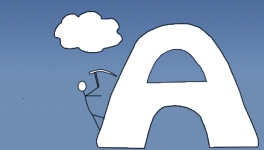« Hotel Booking Tips to Avoid a Travel Nightmare | Main | Rabbits on the Cover… »
Why We Thank Soldiers
By Chris | October 29, 2007
Living in a state with a large agricultural community, I often see bumper stickers with slogans such as, “If You Ate Today, Thank a Farmer.” John Palmer over at EclectEcon captures why the economist in me is so repulsed by these messages. He eloquently writes:
“Why should I thank people who, acting to maximize their own utility, provide me with something I am willing to pay for? I would much rather thank “the invisible hand” of Adam Smith. I would much rather thank the private property rights system that provides incentives for people to produce so much food so inexpensively. I would much rather thank the common law system that enforces contracts made between willing individuals seeking gains from trade.”
I often say “Thank You” when I purchase something, but so does the clerk. Each party is made better off by the transaction. That type of thanks is very different from the gratitude expressed for a gift that has been given without regard to merit. I agree with John’s statement, but it got me thinking. If farmers are not deserving of thanks, why do we thank soldiers? Aren’t they “people who, acting to maximize their own utility, provide [taxpayers] with something [they] are willing to pay for.” Our army is made up of voluntary soldiers, engaging in mutually beneficial transactions. As an undergraduate, my roommate’s decision to join the army was largely a financial one. After three years of major-hopping with no degree in sight, he saw the army as the best way to get out from under 40,000 dollars in debt. Monetary incentives influence many soldiers decisions to enlist. John Kerry’s statement that students could get “stuck in Iraq” if they didn’t study, while lacking tact, was founded in reality.
Some people might suggest that we thank soldiers because their job entails a high degree of risk, but so do a lot of other jobs. Most people do not feel that they owe king crab fisherman special thanks when they sit down to eat at an expensive restaurant. Yet, king crab fishing is one of the United State’s most dangerous jobs. Likewise, most people who use coal-powered electricity don’t feel any special debt to coal miners who risk losing their lives in a mine collapse. But soldiers, even those paid handsomely for their efforts, are held in revere. Should they be?
I believe there is an economic reason they should. Working as a soldier is an extremely dangerous job. As the risk of death increases, a soldier’s price elasticity of supply for labor is increasingly inelastic. If there is a 80 percent chance I am going to die in the next year, doubling my salary won’t persuade me to enlist. Meanwhile, the demand for soldiers, in general, is also often very inelastic. If the Nazis are about to invade a small Eastern European country, the government will expend whatever resources it has available to defend itself. A market based equilibrium produces very few soldiers who receive extremely high compensation. The system is plagued by a prisoner’s dilemma. As a citizen I am better off if the Nazi’s are defeated. However, the marginal impact of my participation is very small. I might kill a few German soldiers, but it won’t change the impact of the outcome. Individually everyone is better off not fighting while collectively everyone is better off enlisting. During war, governments have responded to the problem by drafting soldiers. But drafts have problems of their own. People waste resources dodging them and they inefficiently allocate human capital.
Society has limited the extremity of this market failure by paying soldiers with respect and esteem. Money will not persuade a person to fight to the death, but the knowledge that he or she will die with honor and be regarded with the utmost respect, might. Some of that honor and respect will be paid by future generations who will benefit from the nation’s defense. Past societies who did not value soldiers were quickly defeated by their enemies. Why do we thank soldiers? Because we can’t afford not to (in more ways then one).
Topics: Economics | 1 Comment »



October 31st, 2007 at 11:18 pm
Very impressive!
I have thought about such topic before. Why we need to thank those waitress or taxi drivers who work even on the Spring Festival(China’s biggest festival)? Their incentive is earning higher salary,rather than serving people or contributing to the society. Everybody makes choice according to their own utility function. But those who value honor and esteem higher than money do need more respect from us, like sodiers.
Chris, I am very impressed by strong economic muscles and excellent expression skill. Reading your articles is much more interesting than working on Math Econ. I am happy that I have friend like you, and there is so much I am eager to learn from and communicate with you.